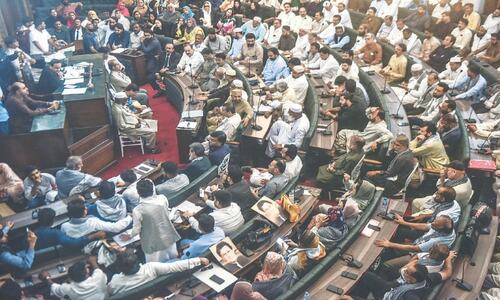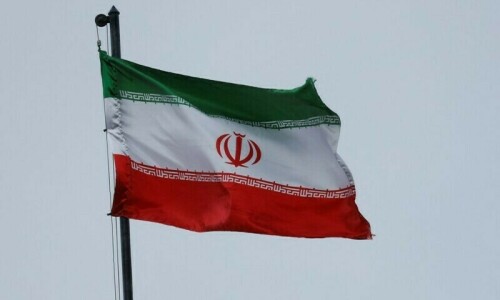ISLAMABAD: The federal government will have to pick about Rs9.20 per unit additional subsidy out of taxpayers’ money for electricity to be sold by privatised K-Electric, whose average tariff was estimated at Rs44.69 per unit by the National Electric Power Regulatory Authority (Nepra) at a public hearing on Thursday.
The hearing — presided over by a four-member panel comprising Nepra Chairman Waseem Mukhtar and three members, Mathar Niaz Rana, Maqsood Anwar Khan and Amina Ahmed — was told by the K-Electric team led by its CEO Moonis Abdullah Alvi that the State Bank of Pakistan would have to enhance per-party borrowing limit by local banks, especially for K-Electric, otherwise the power entity would have to depend on expensive foreign debt, resulting in an even higher cost to consumers.
On a question from Nepra tariff member Mr Rana, K-Electric’s CFO Aamir Ghaziani and Nepra’s case officers confirmed that the combined average tariff for the Karachi-based power utility for the next seven years (2023-30) works out at Rs44.69 per unit (kilowatt-hour, or kWh) against its existing average rate of about Rs34 per unit under the previous multi-year tariff (2017-23).
The next multi-year tariff comprises Rs31.42 per unit for energy price and capacity payments, Rs3.48 per unit for transmission charge, Rs3.84 per unit for distribution charge, and Rs5.96 per unit for supply tariff. Nepra has separately confirmed many of these charges through its determinations.
The average national tariff approved by Nepra based on revenue requirements of other Discos was Rs35.50 per unit for the next fiscal year (2024-25) and is set to become effective from July 1 following a formal government clearance.
It was explained that under the government and Nepra policies and practice, a uniform tariff was applicable across the country, which meant the government would pick Rs9.20 per unit higher tariff of KE as tariff differential subsidy (TDS).
On top of this would be the monthly fuel cost adjustments and quarterly tariff adjustments, in addition to multiple taxes, duties, and charges, as applicable at present for K-Electric and other Discos.
Various Karachi-based consumer representatives, including the Karachi Chamber of Commerce, Korangi Association, steel producers, Jamaat-i-Islami and others, complained about excessive load-shedding in the city amid scorching heat.
They also criticised K-Electric for its poor service delivery, power outages, etc. They pointed out that the performance of public-sector distribution companies was better when seen in the context of transmission and dispatch losses.
However, KE’s team claimed that the private entity had been able to reduce system losses from over 34pc to 15.3pc over the past 18 years; otherwise, the average tariff would have been Rs17 per unit higher.
Published in Dawn, June 28th, 2024















































